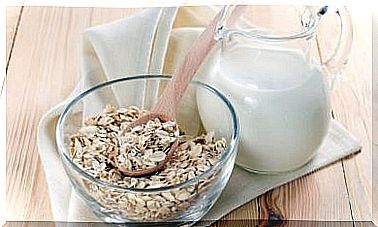Preventing Childhood Obesity Is Possible, Discover How To Do It
Childhood obesity is an increasingly worrisome disorder. Parents have the responsibility to devise a healthy plan to prevent it.

To prevent childhood obesity, it is essential to encourage the practice of healthy habits from the first years of life. Although there are multiple factors that affect the development of this disorder, proper nutrition and exercise reduce the risk.
A child is obese when his weight is above normal for his age and height. This condition is quite concerning for parents as it leads to the development of dangerous diseases like diabetes, hypertension, and high cholesterol.
In addition, it can be a trigger for depression and self-esteem problems, especially when the child is in school. How to detect childhood obesity? What can help to avoid it? Here we help you solve these questions.
Symptoms of childhood obesity

It is very important to note that not all children who have a few “extra pounds” are overweight or obese. Some have a larger than average body build for their age. Similarly, weight changes at each stage of development.
Therefore, in order to talk about childhood obesity, a professional diagnosis must be made. The doctor can evaluate the body mass index (BMI) to determine if it is indeed this problem. In addition, the minor may present symptoms such as:
- High blood pressure
- Hypercholesterolemia
- Low adaptation to physical exercise
- Tendency to have an asthma attack
- Social isolation and difficulties making friends
- Difficulty sleeping well and snoring
- Depression and anxiety
- Joint and bone problems
- Skin disorders
- Low self-esteem
Tips to prevent childhood obesity
Genetic and hormonal factors affect children’s weight. However, the main culprits for being overweight have to do with lifestyle and diet. Therefore, to prevent childhood obesity, some recommendations can be applied.
Breast-feed

The first step in preventing childhood obesity is feeding your baby breast milk for the first six months of life. In fact, it is advisable to extend breastfeeding until the first year, as it is a good complement to their nutrition.
Plan a good diet
Good eating habits are essential for children to have a healthy weight. Therefore, teaching them from the first years of life can help prevent overweight and related diseases. What does a good diet mean?
Children’s diet changes in each of their stages of development due to the nutritional needs they acquire. However, in general terms, a good diet is one that incorporates healthy, good quality food.
Parents have the responsibility to design appropriate menus for their children. Thus, these must follow the guidelines of the nutritional pyramid, without restrictions or extremes. Children can consume:
- Abundant fruits and vegetables
- Low-fat dairy
- Whole grains and legumes
- Seeds and nuts (except young children because of the risk of choking)
- Natural juices and water
- Lean meats and fish
Encourage physical activity

The best complement to good nutrition to prevent childhood obesity is physical exercise. Although young children should not follow a strict routine, they can do sports activities that allow them to be active and out of a sedentary lifestyle.
Outdoor games, sports, and dancing are some fun ways to encourage physical activity against excess weight. Now, the ideal is to dedicate at least 20 minutes, 3 or 5 times a week.
Control the consumption of sweets and fried foods
Children are lovers of sweets and packaged snacks ; in fact, they taste so exquisite that many would like to use them to replace main meals. Great care! Although they are harmless in small amounts, their regular consumption influences overweight and obesity.
These foods cause metabolic disorders that lead to excessive fat accumulation. They can also cause increased blood sugar, excess cholesterol, and nutritional difficulties. The most popular are:
- Potato chips
- Chocolates and sweets
- Bread and industrial bakery products
- Stuffed meats or junk food
Prepare healthy lunch boxes

The industrial products they sell for children’s lunch boxes are not the best option for preventing childhood obesity. Although not all are harmful, most contain sugars and chemical additives that can affect health.
Therefore, to ensure a healthy weight and good concentration, the ideal is to prepare healthy lunch boxes in advance. There are many ingredients to help defuse hunger at school or between meals. Some options are:
- Jelly with fruit
- Apples and pears
- Plain yogurt
- Vegetable sandwiches
- Vegetable milks
In conclusion, parents should be involved in the plan to prevent childhood obesity, especially if there are risk factors. Teaching healthy habits and maintaining regular medical check-ups is key so that this problem does not develop.









